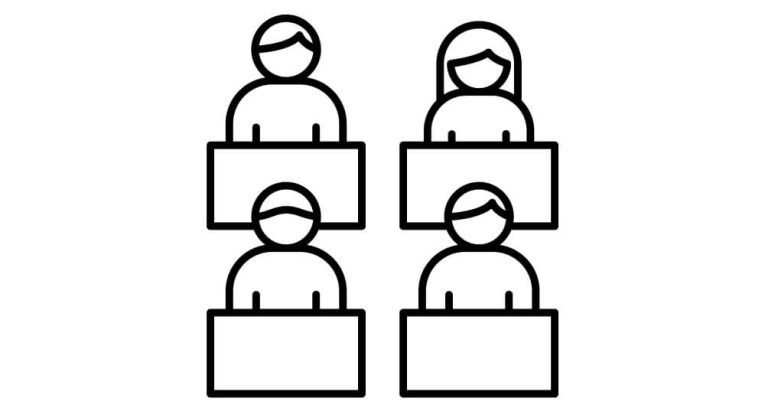“Exams are the worst possible way of assessing students’ educational achievements – except for all the others…”

We can all agree on the need to avoid the mistakes of exam season 2020, says David Didau, but with its promise of ‘business as usual’ next year, is the government creating a hostage to fortune?

- by David Didau
- Writer, speaker & senior lead practitioner for English at OAT Visit website

Love ‘em or hate ‘em, exams have been an immutable fact of life for as long as anyone can remember. The towering twin edifices of GCSEs and A levels dominate the educational landscape, casting much of what goes on in schools into deep shadow…
…until they don’t. Over the course of this year, any such certainties have been swept away by a global pandemic.
For the first time in living memory, exams were cancelled and replaced with centre assessed grades (CAGs) – and we all know how well that decision turned out!
Sidestepping for a moment the rights and wrongs of ‘trusting teachers’, 2020 really has been unprecedented. No one had any idea what to expect, so outright cancellation became the only game in town. It may be entertaining for armchair experts to play hindsight bingo, but at the time there was no better alternative.
The extraordinary subsequent botching of how students were awarded their grades is a long and sorry tale that’s been dealt with at length elsewhere – suffice to say that whatever else happens in the near future, we can at least agree that no one wants a repeat of that particular dog’s breakfast.
No exceptions
So, what should happen next year? Appalling as last summer was, we at least now have a precedent. We know we can, if needs be, cancel exams again.
Should that be the decision taken, we also know that we’ll need time to ensure that next year’s centre assessed grades are fairer and more robust. At the time of writing, the government has vowed that the 2021 exam season will go ahead, come what may. I too hope that can happen – but making such a firm commitment now seems rather like spitting in the eye of fate and daring the virus to do its worst…
With some parts of the country having had to observe Tier 3 lockdown measures, before those restrictions were later applied to the rest of the country, the prospect of sitting exams as normal feels to many less fair than it ever has. And what if your school has to close and move lessons online? What if your bubble needs to self-isolate and misses out on some invaluable face-to- face interactions?
One response might be to say that exams have always been unfair. Some students are unfortunate enough to be taught in failing schools, so that regardless of their own efforts, they’re unlikely to do as well as those lucky souls living in leafy suburbs, or who have parents able to afford a private education. Life has never been fair. This year, while maybe a little less fair than before, is no exception.
Unedifying spectacle
The rejoinder to that is to simply ask why we shouldn’t cancel exams again – in fact, why don’t we take the opportunity to scrap exams altogether? We’d surely be better off just trusting teachers – who, after all, will know their students far better than any examiner or algorithm.
Well, the sad fact is that due to the way in which schools are held accountable, the pressures on schools to deliver great results are enormous. This year we had the unedifying spectacle of many schools boasting of ‘record results’, and saying how proud they were of the grades they had handed out.
With exam grades seen as so integral to schools’ success, it’s hard to trust schools to be entirely impartial. We have a long – and recent – history of gaming, grade inflation and a few well-publicised cases of actual cheating, which makes it hard to keep faith that something which means so much to schools can be left entirely in their hands. The temptation to massage is simply too great.
Even worse, teachers are, like everyone else, unwitting victims of well-understood cognitive biases. If children are well-spoken and smartly dressed, we also tend to assume that they’re cleverer. We don’t mean for it to happen, but marginalised children are routinely disadvantaged further by teacher assessment. Exams, for all their problems, act to narrow the gap between the most and least advantaged.
What should concern us most is that exams are the worst possible way of assessing students’ educational achievements, except for all the others. If we cancel exams, fair though that might seem, we’ll be acting to widen the already yawning chasm between the richest and poorest people in society.
David Didau is an independent education consultant and writer. He blogs at learningspy.co.uk and is the author of several books, the latest of which is Making Kids Cleverer: A manifesto for closing the advantage gap (£14.99, Crown House).










